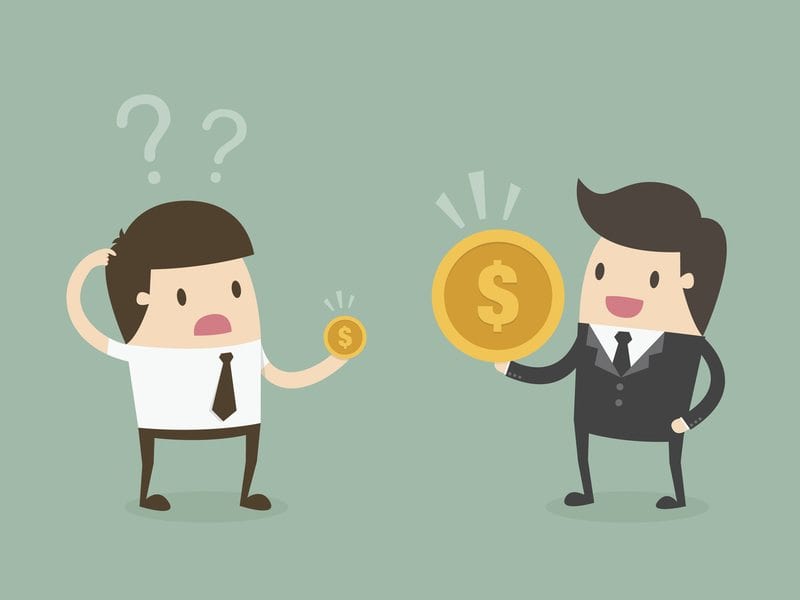To Micro Budget, or Macro Budget?
by Kevin Silver
When you find yourself stuck in a financial bog, a bigger paycheck isn’t necessarily the all-encompassing solution that resolves any money problem.

After all, what's the use of having more money, if you have no idea where that money will go? Oftentimes, cutting expenses may be more lucrative than increasing income. And in order to do that, you have to instill a self-imposed budget.
Budgeting is an important component of financial success. It's what helps people, regardless of their incomes and expenses, always have the money for the things they need, unforeseen or otherwise.
But regardless of how frustrating it can be to regulate yourself, budgeting shouldn't feel like a punishment. Having control over your money isn’t just about saving and investing - you need to live a little, too.
So how do you create a budget plan that you know you can stick with, without feeling like you're putting yourself in chains? Well, you might be better off asking yourself this first: should you micro or macro budget?
What is Micro Budgeting?
Imagine keeping an eagle eye on every microscopic activity that goes on in your bank account, carefully planning how you're going to be spending each and every dime and nickel in your account.
That’s the gist of how micro budgeting works.
Being a micro budgeter means being extremely sparing about every aspect of your spending. That means you'd be dividing your spending up into a list of very specific categories.
For example, $700 for rent, $300 for groceries, $200 for gas, $150 for entertainment, and so on. You'd do everything you can to make sure you stay within spending range for each and every category – tracking, categorizing, and analyzing your spending every step of the way.
What is Macro Budgeting?
And on the flip side, there's what's called macro budgeting.
Macro budgeting means splitting your spending into two very general groups: your 'needs' and 'wants'. Unlike micro budgeting, you don't need to fuss over every individual spending category.
So your living expenses – such as rent, groceries, and gas – would all be listed under 'needs', while things like entertainment and recreational expenses would fall under 'wants'.
Micro vs. Macro: Which One Is Right for You?
There's a reason why personal finance books tell you to jump to micro budgeting if you want to turn your financial status around. Not only does it help you gain meticulous control over the flow of your money, it also helps you set targets and adjust your lifestyle to work within those figures.
Micro budgeting naturally teaches you how to be more frugal. It forces you to look closely at how you're spending your money, think of ways on how you could spend less, work those methods into practice, and figure out the tactics that ultimately work for you.
For instance, let's say you budget $500 for food, when you normally spend $700 for the month. In order to achieve your new goal, you'll be pushing yourself to make smarter choices! Maybe you'll visit cheaper grocery stores, start making shopping lists, and make it a habit to eat meals at home.
Whatever the case, when you're micro budgeting, you'll be seamlessly integrating these various strategies into your lifestyle.
What’s the Catch?
Here's the thing: you'll often find yourself in situations where you just don't have the time or patience to be on top of every little detail. Micro budgeting can be tedious, even if you’re highly efficient at it. It's a very detailed and meticulous way of maintaining personal finances!
Plus, it's quite inflexible. There are certain things in life that you just can't control and micro budgeting won't take that into consideration. An unexpected expense can really wreck your micro budget and leave you feeling like you failed to achieve your goals! That can hinder your self-esteem, and really hold you back from continuing to stick to your budget plan.
What About Going Both Micro AND Macro?
If you're an 'emotional spender' and feel that you need to discipline yourself, it may be wise for you to consider micro budgeting. But once you feel that the frugal living strategies you've adopted during your micro budgeting phase has become second nature, that's when you should take off the training wheels and move to a macro budget.
At the end of the day, a good budget plan is one that helps you make better decisions with your money. Don't feel as if you have to stick to a single budget type in order to reach financial stability and success!
But if you find that no amount of budgeting can help you deal with your debt, Magical Credit offers short-term cash loans for people with a reliable source of income, and proven debt repayment history. Our loans, ranging from $500-$20,000, are perfect for quickly paying off debt and getting your financial affairs organized!
Apply for a loan today by submitting our online application, or contact us at 1-877-213-2088.





